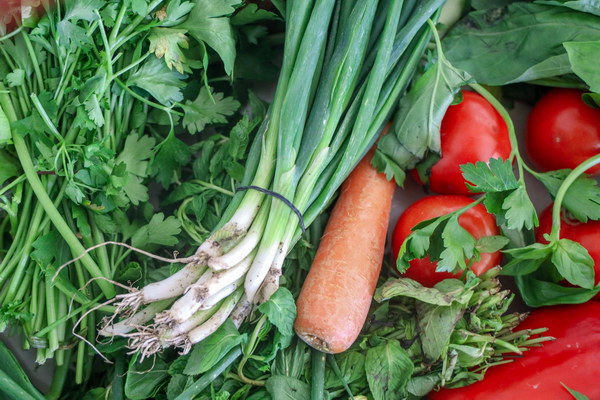Nurturing Your Stomach A Guide to Gastric Care for Singles
Living as a single individual often comes with its own set of challenges, and one of the most overlooked aspects is the importance of maintaining a healthy stomach. Whether you're cooking for one or simply finding it easier to grab quick snacks on the go, it's crucial to prioritize your digestive health. Here's a comprehensive guide to help you nurture your stomach, even when you're flying solo.
1. Embrace Balanced Meals
One of the first steps in maintaining a healthy stomach is to ensure that your meals are balanced. As a single person, you might be tempted to skip meals or opt for convenience foods, but this can lead to an imbalanced diet and digestive issues. Instead, aim to incorporate a variety of nutrients into your meals, including:
- Protein: Lean meats, fish, eggs, and legumes are excellent sources of protein, which help repair and build tissues in your body.
- Carbohydrates: Choose complex carbohydrates like whole grains, fruits, and vegetables to provide sustained energy.
- Fats: Healthy fats, such as those found in avocados, nuts, and olive oil, are essential for hormonal balance and nutrient absorption.
- Fiber: A diet rich in fiber can help prevent constipation, bloating, and other digestive problems. Incorporate foods like fruits, vegetables, whole grains, and legumes.
2. Plan Your Meals
When you live alone, meal planning can be a game-changer. It helps you stay organized, reduces the temptation to eat unhealthy foods, and ensures that you have the necessary ingredients for balanced meals. Here's how to get started:
- Set aside time each week to plan your meals for the upcoming days.
- Create a grocery list based on your meal plan to avoid impulse purchases.

- Cook in batches to save time and reduce food waste. Store leftovers in the fridge or freezer for easy reheating.
3. Stay Hydrated
Proper hydration is essential for maintaining a healthy stomach. Water helps digest your food, absorb nutrients, and eliminate waste. Aim to drink at least eight glasses of water per day, and consider adding a slice of lemon or cucumber for added flavor.
4. Mindful Eating
When you're alone, it's easy to become distracted while eating, leading to poor digestion. To improve your stomach health, try the following:
- Eat slowly and savor each bite to aid in digestion.
- Turn off distractions, like TV or phones, to focus on your meal.
- Pay attention to your body's hunger and fullness cues to avoid overeating.
5. Manage Stress
Stress can have a significant impact on your digestive health. When you're stressed, your body produces more stomach acid, which can lead to discomfort and inflammation. To manage stress:
- Practice relaxation techniques, such as deep breathing, meditation, or yoga.
- Schedule regular exercise to reduce stress levels.
- Make time for hobbies and activities that bring you joy.
6. Identify and Avoid Trigger Foods
Certain foods can exacerbate stomach issues, such as spicy, greasy, or fried foods. To improve your stomach health, keep a food diary to identify any trigger foods and avoid them.
7. Seek Professional Advice
If you're experiencing persistent stomach problems, it's essential to consult a healthcare professional. They can help diagnose any underlying issues and recommend appropriate treatment.
In conclusion, maintaining a healthy stomach is possible even when you're living as a single individual. By embracing balanced meals, meal planning, staying hydrated, mindful eating, managing stress, avoiding trigger foods, and seeking professional advice when necessary, you can nurture your stomach and improve your overall well-being.









